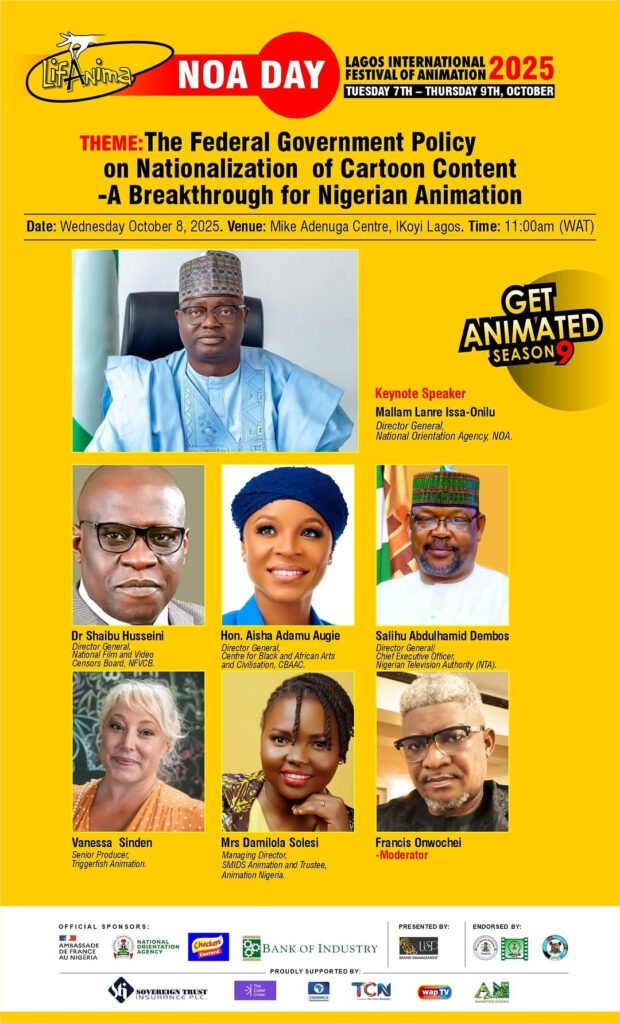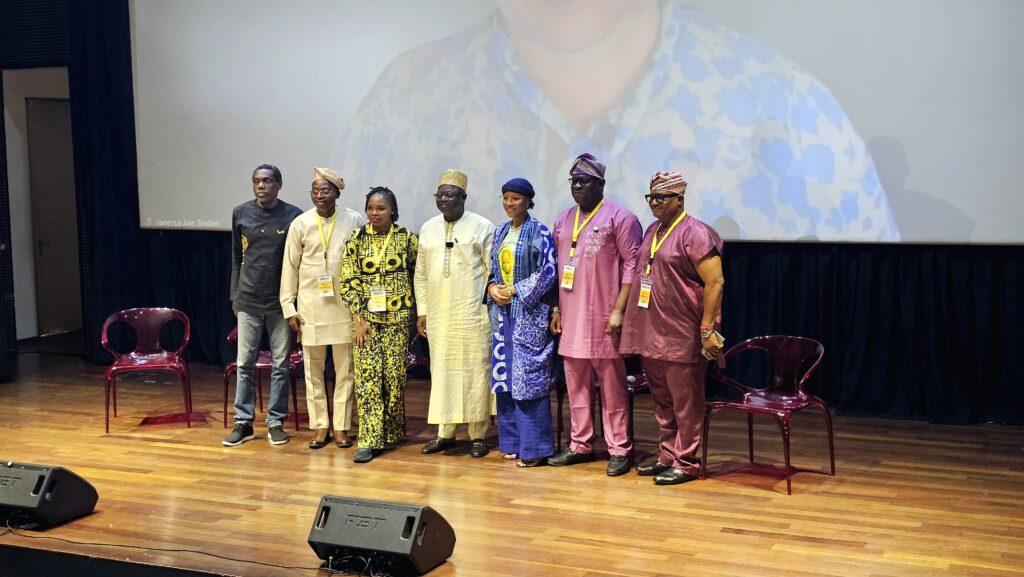The second day of Lagos International Festival of Animation (LIFANIMA 2025) carried the weight of expectation a day reserved for policy, national identity, and the bold move toward “The Federal Government Policy on Nationalization of Cartoon Content: A Breakthrough for Nigerian Animation.”
With top government and creative stakeholders in the room (and online), Day 2 served as a clarion call for Nigeria’s animation industry to step into its moment.
Keynote & Panel Voices
- Mallam Lanre Issa-Onilu, Director General of National Orientation Agency (NOA), delivered the keynote address, framing nationalization not as a restriction but as a catalyst. His vision emphasized that promoting indigenous content isn’t about silencing global stories — it’s about amplifying Nigerian voices in animation.
- The panel featured distinguished leaders including:
• Dr. Shaibu Husseini, Director General of the Nigerian Film & Video Censors Board (NFVCB)
• Hon. Aisha Adamu Augie, Director General of the Centre for Black and African Arts & Civilisation (CBAAC)
• Mrs. Damilola Solesi, MD of SMIDS Animation and Trustee of Animation Nigeria
• Salihu Abdulhamid Dembos, Director General of Nigerian Television Authority (NTA) representative attended to voice public broadcasting’s interest in local animated content
• Francis Onwochei, veteran producer, served as moderator
This lineup reflected the seriousness of the discussion blending regulatory, cultural, and creative perspectives in conversation.

Vanessa Sinden Joins Virtually
In a welcome cross-continental addition, Vanessa Ann Sinden, senior producer at Triggerfish Animation, joined the proceedings virtually.
Her involvement underscored the global relevance of Nigeria’s animation policy. As a jury member for LIFANIMA and a respected producer in African animation, Sinden’s contributions added a broader industry lens to the conversation.
Her virtual presence signaled that Nigeria’s move toward nationalization is being watched (and studied) by animation stakeholders around the continent.

Highlights & Takeaways
- The debate centered on how nationalization can protect local animators without isolating them from global collaboration and inspiration. Questions of quotas, content standards, funding, and intellectual property were also raised.
- Mrs. Damilola Solesi pushed for stronger infrastructure and institutional support, arguing that policy is only as effective as the execution systems behind it.
- Dr. Husseini, from NFVCB, spoke to the need for balanced regulation ensuring quality, cultural value, and accountability in content, without policing creativity unduly.
- The role of public broadcasters (through NTA’s representation) was raised, especially in how government media can champion homegrown animated works and encourage local uptake.
- Mallam Issa-Onilu’s keynote proposed that the NOA could act as a nexus translating national narrative goals into audience engagement and public education campaigns.
From ComicPanel’s Viewpoint
From ComicPanel’s perspective, Day 2 reaffirmed that animation in Nigeria is entering a pivotal stage. The policy talk wasn’t only theoretical it has real implications for funding, creative ownership, and how Nigerian stories get told and seen.
Vanessa Sinden’s virtual participation sent a clear signal: Nigeria’s animation agenda is part of a broader, continent-wide conversation.
As the festival progresses, the success of this policy push will depend on bridging creative ambition with institutional muscle.
Day 2 ended with applause, high expectations, and a sense that things may genuinely shift for the better.
The rest of LIFANIMA (October 8–9) will bring screenings, workshops, and further panels but Day 2 will likely be remembered as its policy inflection point.